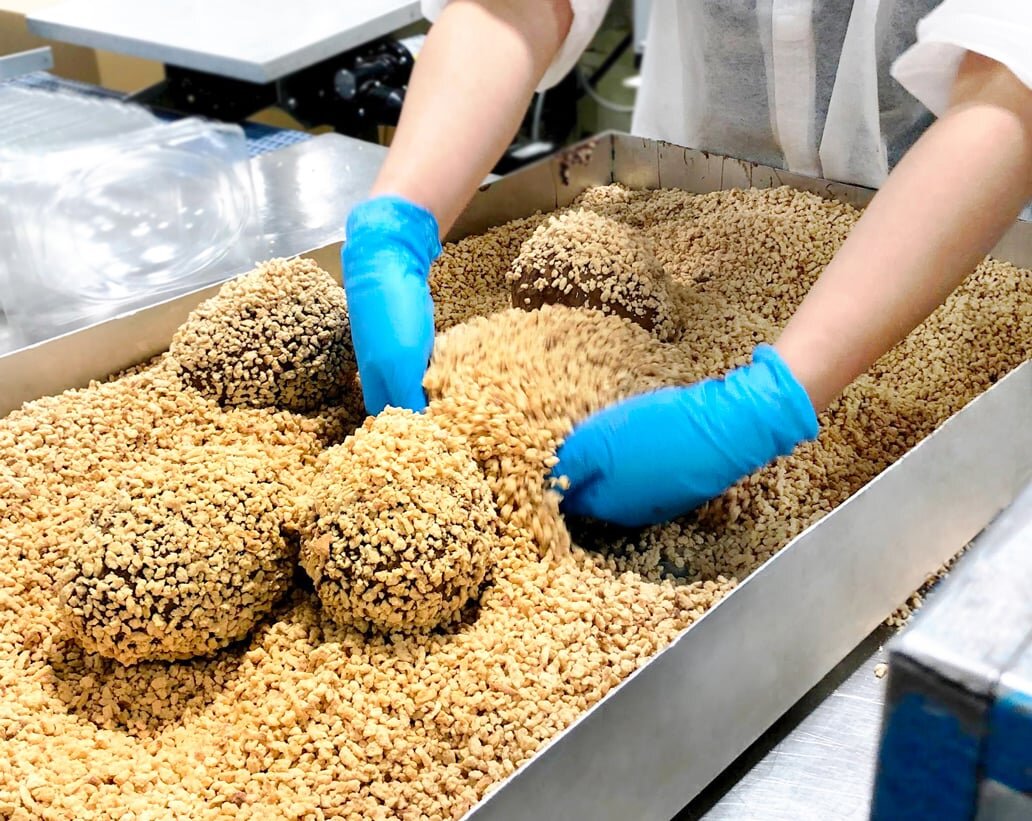In today's diligent customer landscape, the demand for fairly sourced as well as sustainable products has surged. Private label food manufacturers have actually emerged as innovators in this domain name, frequently collaborating with contract food manufacturers to spearhead sustainability and also liable sourcing initiatives. With a tenacious dedication to ecological ethics, personal label brands have made it their goal to supply lasting, top quality alternatives to customers.
Private Label Food Manufacturers
In recent years, private label food manufacturers, additionally called own brands or store brands, have actually witnessed an impressive surge in popularity. These manufacturers produce products offered under the logo of a retailer, grocer, or personal entity. What sets private-label products apart is their ability to use competitive prices without endangering on quality.
Agreement Food Manufacturers
Several private-label food suppliers join forces with contract producers to develop their product lines. Contract food suppliers are professionals in producing food products for personal labels. This critical partnership allows personal label business to use the expertise, sources, and dedicated food manufacturing centers of their partners.
Sustainability at the Core
Private label food manufacturers use numerous techniques to boost sustainability within their supply networks:
Moral Sourcing:
Personal label companies are progressively committed to sourcing components according to moral as well as fair profession requirements. This involves ensuring that manufacturers and workers of basic materials, such as coffee beans, flavors, or chocolate, get reasonable settlement for their efforts.
Regional Sourcing:
Focusing on neighborhood sourcing of components is an additional trademark of private-label food manufacturers. This not just lowers the carbon impact related to transportation but also sustains regional farmers and communities.
Organic Ingredients:
With the organic food market increasing, exclusive tags are reacting by incorporating natural ingredients into their product lines. Organic farming practices prioritize dirt health and wellness while eschewing synthetic chemicals and also fertilizers.
Sustainable Seafood:
Private Label Food Manufacturers are diligent in making certain that the fish and shellfish they utilize is sustainably collected, sticking to guidelines established by organizations like the Marine Stewardship Council, which advertises responsible angling.
Minimized Food Waste:

Private label business are proactively dealing with lowering food waste by applying effective manufacturing processes as well as establishing items with longer service life. Some brand names are additionally partnering with food rescue organizations to give away surplus food to those in requirement.
Eco-Friendly Product Packaging and Campaigns
Sustainability initiatives by private-label food makers extend past sourcing ingredients to encompass product packaging as well as eco-friendly initiatives:
Sustainable Product packaging:
Personal label brand names have actually accepted eco-friendly product packaging choices, consisting of recyclable, naturally degradable, or compostable materials. Revamping packaging to lessen excess material and also decrease ecological influence is a top concern.
Waste Decrease:
To reduce wastefulness, private-label food suppliers maximize item sizes, lower excess packaging, and also discover cutting-edge packaging solutions. Some brands also motivate customers to take part in reusing programs.
Energy Performance:
Several personal label suppliers are buying more energy-efficient manufacturing plants, decreasing water use, and also taking on renewable energy resources to additionally lower their environmental footprint.
Carbon Neutral Initiatives:

Some personal brand name food manufacturers are taking enthusiastic steps to accomplish carbon neutrality by offsetting private label food manufacturers australia their greenhouse gas discharges via reforestation projects and also renewable resource credit scores.
Challenges and also the Road Ahead
Regardless of the considerable strides made in sustainability and liable sourcing, private-label food producers face obstacles. Balancing sustainability with cost-effectiveness can be a delicate act, occasionally needing concessions on sustainable active ingredients or the expedition of eco-friendly alternatives.
However, the future of private-label food manufacturing holds terrific guarantee. As customer understanding and also need for sustainable products remain to increase, private-label brands as well as their agreement food manufacturing companions are likely to escalate their initiatives. Partnership with vendors and investment in lasting technological advancements and also openness will certainly be crucial fit a sustainable future for the industry.
Often Asked Inquiries
Q1: What are private label food manufacturers?
Private label food manufacturers create items sold under the logo of a retail store, grocer, or personal entity. They offer competitively valued products without jeopardizing on quality.
Q2: Just how do private label food manufacturers advertise sustainability?
Private label food manufacturers promote sustainability through ethical sourcing, local active ingredient purchase, making use of organic components, lasting fish and shellfish practices, as well as efforts to decrease food waste.
Q3: What green product packaging options do personal label brand names use?
Personal label brand names adopt environmentally friendly product packaging choices such as recyclable, naturally degradable, or compostable products. They also redesign packaging to minimize excess product and also minimize ecological impact.
Q4: What tests do private label food manufacturers encounter in sustainability efforts?
Balancing sustainability with cost-effectiveness is a significant difficulty for private label food manufacturers. This might call for compromises on lasting ingredients or the expedition of eco-friendly choices.
Conclusion
Private label food manufacturers are at the forefront of the sustainability and also responsible sourcing movement within the food sector. Their dedication to moral sourcing, neighborhood purchase, organic ingredients, as well as sustainable techniques, along with their devotion to green packaging and waste reduction efforts, show their resolution to meet the demands of today's eco-conscious consumers.
Regardless of the challenges they encounter, private label food manufacturers are positioned for an appealing future. With customers increasingly prioritizing sustainability, the market is likely to witness even higher cooperation with distributors, financial investment in lasting innovations, as well as a dedication to openness. As we move on, private label food manufacturers will continue to play a vital function fit a more lasting and honest food landscape for all.